Credits
109
Preparing clinicians who are passionately committed to recognizing the dignity of all human beings through participation in valued occupations, resilient and creative problem solvers prepared to rise to the challenges of a changing world.
The Occupational Therapy Doctorate program at CUAA will prepare you to serve people across the lifespan to improve their lives through the therapeutic use of everyday activities. You will take part in a variety of clinical and community-based experiences which include individual and group treatment sessions in pediatric and adult populations. At CUAA, we prepare uncommon OTs who are ready to serve their communities and clients.
109
Online and in-person format allows flexibility for busy students.
Our team is available to help you as you consider the next step in your education.
Our team is standing by to assist you with additional program details, financial aid options, and admissions questions.
Loading...
The Concordia University Ann Arbor Occupational Therapy Program prepares clinicians who are passionately committed to recognizing the dignity of all human beings through participation in valued occupations, resilient and creative problem solvers prepared to rise to the challenges of a changing world.
Graduates of the Concordia University Ann Arbor Occupational Therapy Program will be consistently recognized as highly compassionate professionals with the skills to empower effective change in individuals, communities, and in health care.
The CUAA OT program is designed to prepare graduates to excel within the complexities of both traditional and emerging practice areas.
Note: The first cohort graduated in May 2025; NBCOT exam results will become available in 2026.
All applicants to the Concordia University Ann Arbor Occupational Therapy Program will utilize the Occupational Therapy Centralized Application Service (OTCAS). The application process will open mid-July of the year prior to admission and close June 6.
Concordia University Ann Arbor utilizes a rolling admissions process. Qualified applicants will be invited to participate in the interview process, which take place virtually approximately every other month. Applicants are encouraged to apply and interview early and will be notified of their admission status within two weeks after the interview.
The 2026 cohort's first semester will begin on Monday, August 24, 2026 with a mandatory orientation on Friday, August 21, 2026. This shift in start date will shorten the program by 1.5 semesters, allowing you to earn your entry-level Doctor of Occupational Therapy degree in just 28 months! Add us as a program of interest in your OTCAS application in order to receive notice of upcoming events and program information. Apply before June 6 to get started.
A request for final approval of these changes has been submitted to the University and ACOTE.Scholarships for Occupational Therapy students:
All students applying for admission to the program must have:
Note: the program does not accept occupational therapy transfer students or credits.
The Concordia University Ann Arbor entry-level occupational therapy doctoral degree program is fully accredited by the Accreditation Council for Occupational Therapy Education (ACOTE) of the American Occupational Therapy Association (AOTA), located at 7501 Wisconsin Avenue, Suite 510E, Bethesda, MD 20814. ACOTE’s telephone number c/o AOTA is (301) 652-6611 and its Web address is www.acoteonline.org.
Graduates are eligible to sit for the national certification examination for the occupational therapist administered by the National Board for Certification in Occupational Therapy (NBCOT). After successful completion of this exam, the individual will be an Occupational Therapist, Registered (OTR). In addition, all states require licensure in order to practice; however, state licenses are usually based on the results of the NBCOT Certification Examination. Note that a felony conviction may affect a graduate’s ability to sit for the NBCOT certification examination or attain state licensure.
Students must complete 24 weeks of Level II fieldwork as well as an individual 14-week capstone experience within 24 months following the completion of the didactic portion of the program. The doctoral capstone experience must be started after completion of all coursework and Level II fieldwork as well as completion of preparatory activities defined in 2018 ACOTE OTD Standard D.1.3.
Assistant Dean - School of Health Professions, Professor
Office: Ann Arbor North Building 204G
Phone: (734) 995-7596
Program Director - Occupational Therapy. Dr. Chreston is an occupational therapist since 1994, experienced in physical rehabilitation and community re-integration. In addition to working in most traditional OT settings (inpatient rehab, acute care, skilled nursing, outpatient, home care) she has consulting experience around topics including independent living, environmental modifications, and assistive technology. She has also served in academic programs since 2007 and is recognized as a Credentialed Leader in Academia by the American Occupational Therapy Association. She also volunteers as an accreditation reviewer with ACOTE. She lives in Grass Lake with her husband of 35+ years and their two dogs.
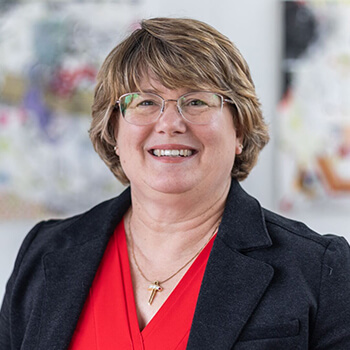
Coordinator - Doctoral Capstone, Assistant Professor
Office: Ann Arbor North Building 210D
Phone: (734) 995-7479
Dr. Kehoe earned his OTD from the University of Toledo in 2014 and a BA in exercise science from Adrian College in 2011. He has practiced OT for over a decade across acute care, inpatient behavioral health, traditional outpatient, and outpatient pediatric settings.
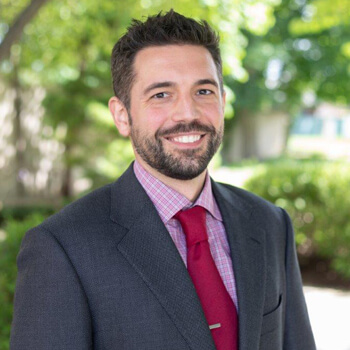
Assistant Professor
Phone: (734) 995-7392
Dr. Emily Paul earned a post-professional occupational therapy doctorate from Chatham University in 2020, an MOT in Occupational Therapy in 2014 from Baker College of Graduate Studies, and a BS in Psychology from Kennesaw State University in 2001. She has practiced OT for 11 years in outpatient pediatric and school settings. She is certified in the Nurturing Parenting Program, Trauma Smart, and Mental Health First Aid youth and adult. Research interests include Kindergarten readiness skills and technology, Vestibular dysregulation and ADHD, and pediatric community engagement and behavior.
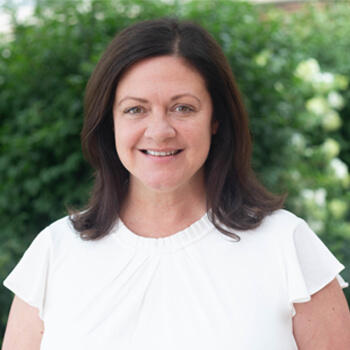
Assistant Professor
Office: Ann Arbor North Building 201S
Phone: (734) 995-7361
Dr. Renner has been a practicing occupational therapist since 2013, spending a large part of her clinical career as a traveling therapist. She finished her Ph.D. in 2021 with a research focus on complementary health approaches and integrative health practices among occupational therapists.
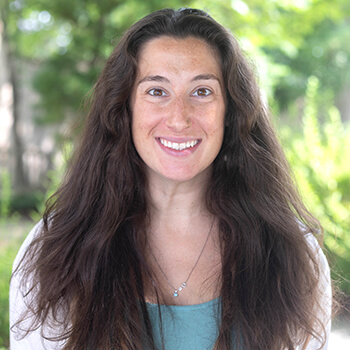
Coordinator - Occupational Therapy Academic Fieldwork, Assistant Professor
Phone: (734) 995-7369
Dr. Sit has 25 years of experience as an OTR with particular interests in perimenopausal health management and supporting health through participation in meaningful occupation across the lifespan.
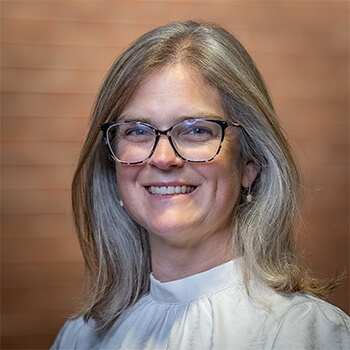
Assistant Professor
Office: Ann Arbor North Building 301
Phone: (734) 995-7327
I am a Michigan native from the "downriver" area. I have been practicing occupational therapy since 2015. I was introduced to occupational therapy as a child as my mother was a certified occupational therapy assistant. I have experience in adult and geriatric rehabilitation.
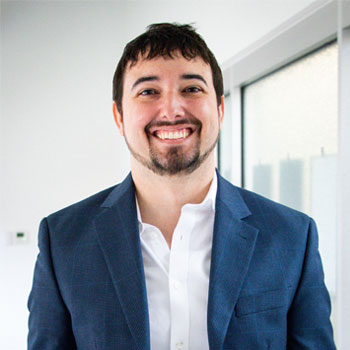
The CUAA OTD Program is designed as a hybrid program with a goal of a minimum of 51% of total instruction delivered through distance education. This design was deliberately chosen in order to allow flexibility for students and attract a more diverse cohort. Students are on campus for two full days per week (Tuesday/Thursday) with a third day (Wednesday) reserved as potentially on campus or in the community in order to accommodate Level I fieldwork activities and interprofessional learning experiences. Students should be aware, however, that the program is full-time with an expected weekly workload of approximately 40 hours between class attendance, preparation, and assignment completion. Many students find they need to make adjustments in their employment, social, and community obligations in order to accommodate their educational commitment.
The majority of courses are designated as Blended-Face-to-face formats with 65% of content provided face-to-face and the balance of instruction asynchronous in the Learning Management System (LMS), which is Canvas. Some courses are designed with more or less face-to-face time, depending on the content and feedback from initial cohorts. Each course syllabus clearly designates the format of the course as well as a breakdown of the face-to-face, videoconferencing (synchronous), online (asynchronous), and expected homework hours of instruction.
All courses in the third year of the program take place online. At this time, students are engaged in Level II fieldwork and the capstone experience. This allows the option for students to return to their home area or another location outside of Southeast Michigan as they complete these elements of the program.
Because of the hybrid nature of the program, students are required to ensure access to a personal computer with camera and internet access at their own expense throughout the course of the program. View minimum recommended technology requirements here.
Hybrid learning requires specific competencies, and it is important for each student to evaluate their individual learning styles and strategies to determine if it is the best format for them. According to Hoppes, Geiger, & Fleisher (2021), ten characteristics important for successful online learning include:
Note: Due to the hybrid and accelerated nature of the program, students in the Occupational Therapy Program do not participate in the Fall/Spring 6th Friday break.
Students participate in learning experiences in the community and in various clinical settings throughout the program. In occupational therapy, we call these experiences “fieldwork.” The purpose of fieldwork education is to:
Level I fieldwork experiences are an introduction to occupational therapy practice and are completed concurrently within the didactic curricula each semester of the first two years of the program through courses titled “Integration and Practice.” These courses aim to introduce students to fieldwork, assist with developing an understanding of client needs, identify strengths and learning/growth needs, and introductory application of knowledge to practice. Concordia University Ann Arbor will utilize a wide variety of activities towards Level I fieldwork each semester, including but not limited to:
Level I fieldwork experiences may take place through community organizations, hospitals, clinics, schools, or through simulation. Supervisors may include but are not limited to practicing occupational therapy clinicians, psychologists, teachers, physician assistants, social workers, nurses, and physical therapists.
On Level I fieldwork, students observe and engage in the treatment process to varying degrees and largely depends on the site. This experience builds a foundation for the skills and knowledge that are required for Level II fieldwork engagement including professional behaviors, developing therapeutic communication, and understanding the clinical reasoning process.
Level II fieldwork is designed to provide an immersive clinical experience to prepare students for entry-level competency and for the National Board for Certification in Occupational Therapy (NBCOT) examination by building skills through observation, analysis and clinical reasoning; demonstrate safe, ethical practice and professional behaviors; and develop therapeutic use of self. Level II fieldwork takes place within two full-time, 12-week clinical placements. These placements occur during the Summer and Fall Semesters during the third year of the program and provides the student with the opportunity to practice occupational therapy under supervision in order to integrate academic knowledge with application skills and attitudes for entry-level practice. Supervision must be provided by an occupational therapist who is currently licensed and has at least 1 year of experience.
The Level II experience is an integral part of the educational process with in-depth experience in delivering occupational therapy services to clients, focusing on the application of purposeful and meaningful occupation and/or research, administration, and management of occupational therapy services. On Level II fieldwork a student will be expected to act as a practicing occupational therapist and is considered an OT intern who engages in the evaluation, intervention planning, intervention implementation, ongoing assessment for effectiveness of intervention, and discharge planning phases of treatment.
Upon successful completion of the Level II fieldwork experiences, the student will perform as a competent, entry-level, generalist occupational therapist. Entry-level performance is defined within each practice environment based on the roles and responsibilities of the occupational therapist in that setting. Level II fieldwork is a full-time, unpaid commitment. Students are considered to be enrolled “full-time” while completing Level II fieldwork and therefore qualify for financial aid. Transportation to and from Level I and II Fieldwork and housing are the responsibility of the student. Concordia University student malpractice insurance is included with tuition.
Students also complete a doctoral capstone, which includes both a project and an experience. The goal of the doctoral capstone is to provide an in-depth exposure to one or more of the following:
Students begin identifying capstone interests in the first semester, and develop their idea and plan throughout the program. Capstone experiences are 14 weeks, full-time, and occur at the end of the program. Similar to fieldwork, students may have additional background checks, drug screens, etc. required by their capstone site and are responsible for housing and transportation during their capstone experience.
To maintain good standing in the program and graduate on time, students must obtain a grade of C+ or better in each course and maintain an overall cumulative grade point average (GPA) of 3.0. Students must complete 24 weeks of Level II fieldwork as well as an individual 14-week capstone experience within 24 months following the completion of the didactic portion of the program. The doctoral capstone experience must be started after completion of all coursework and Level II fieldwork as well as completion of preparatory activities defined in 2018 ACOTE OTD Standard D.1.3.
Concordia University confers the doctoral occupational therapy degree on a student of good character who has met the following requirements:
The first cohort of students graduated in May 2025. The NBCOT Certification Exam first-year pass rates will become available in 2025 and can be found by selecting "Michigan" and "OT Doctoral-Level Programs" on the National Board for Certification in Occupational Therapy School Performance Data page.
| Graduation Year | Students Entering | Students Graduating | Graduation Rate |
| 2027 | 11 | TBD | TBD |
| 2026 | 15 | TBD | TBD |
| 2025 | 13 | 12 | 92% |
3 year graduate rate: TBD
Estimated program costs for the cohort admitted 2026 (university fees and nontuition costs outside of Concordia University subject to change). Note that tuition & fee details are based on assumption of university/ACOTE approval of program changes; in the event changes are not approved, tuition/fee total costs will be divided across 6 billing cycles rather than 5.
| Description | Total |
|---|---|
| Deposit: Nonrefundable, applied to first tuition payment | $500 |
| Tuition: Paid in 5 installments of $18,750 each Fall/Spring | $93,750 |
| University Fees: $172 consolidated fee each Fall/Spring (includes program, technology, and graduation fees) | $860 |
| Parking Fees $200 each Fall during didactic semesters | $400 |
| AOTA Annual Student Membership $75/year | $225 |
| MiOTA Annual Student Membership $30/year | $90 |
| Textbooks and Materials (estimated) | $2,000 |
| EXXAT STEPS Access $35/year | $105 |
| CPR/First Aid | $200 |
| Background Check | $75-100 minimum |
| Immunizations, Health Exams, Drug Screens (varies by clinical site & student history/insurance) | Varies |
| Distance Education Fee | $0 |
| Graduation Regalia | $200 |
| Total Approximate Cost of Program | $97,930 |
It is essential for occupational therapy students to learn through exposure to a wide variety of settings, clinicians, and emerging community roles of occupational therapists to develop passion and ideas for improving occupational engagement, health, and wellness of populations. To do this, we need your help!
ACOTE requires that fieldwork educators for Level II occupational therapy students must be a licensed occupational therapist with minimum 1-year experience. Level I and capstone students may be supervised by non-occupational therapy professionals including but not limited to physical therapists, social workers, nurses, physician assistants, psychologists, teachers, physicians, speech language pathologists, and occupational therapy assistants.
If there is limited OT staff at a site interested in partnering with Concordia University’s occupational therapy department, Concordia would potentially be interested in providing faculty-supervised, student-led programming to expand occupational therapy services.
Concordia University Ann Arbor is a member of the Michigan Occupational Therapy Education Consortium (MOTEC). MOTEC is made up of all of the academic fieldwork coordinators for OT and OTA programs in the state of Michigan. Membership in MOTEC serves to provide all occupational therapy students in the state of Michigan with quality fieldwork and learning opportunities.
With the exception of the accreditation requirements for the candidacy application as outlined above, Concordia University will submit future requests for fieldwork reservations in accordance to the MOTEC policy (requests made in January for the following calendar year).
Clinicians may identify barriers to supervising a student despite the desire to be a fieldwork educator. The Academic Fieldwork Coordinator at Concordia University is available to provide education, resources, and support to assist in reducing barriers. Frequently cited barriers include but are not limited to:
Concordia University Faculty can help reduce these barriers and support you as a fieldwork educator through:
Students may benefit from a collaborative supervision model (one fieldwork educator paired with two or more Level II students, or an OT and OTA student concurrently) as students are accustomed to learning in groups and the ability to learn with and from a peer (within or outside of their OT program) can enhance learning and enrich the educational experience within a Level II fieldwork placement.
For any questions or request for support related to becoming a fieldwork educator or partnering with Concordia University, please contact Jennifer Engja at jennifer.engja@cuaa.edu or 734-995-7369.
We are also seeking potential partners for doctoral capstone experiences. Capstone experiences are 14 weeks, full-time, and occur at the end of the program. Students begin identifying capstone interests in the first semester, and develop their idea and plan throughout the program. Capstone mentors are not required to be occupational therapists.
The goal of the doctoral capstone is to provide an in-depth exposure to one or more of the following:
For any questions or request for support related to scheduling a doctoral capstone student or partnering with Concordia University, please contact Juliane Chreston at juliane.chreston@cuaa.eduu or 734-995-7596
It is highly beneficial to include practitioners within the educational aspects of the program. This provides the opportunity for students to begin developing professional networks, experience real world practice issues, and learn about specialty areas of practice. Activities can take place on campus, in the community, or virtually and may be in the form of:
If you are interested please contact Program Director Juliane Chreston at juliane.chreston@cuaa.edu or 734-995-7596.